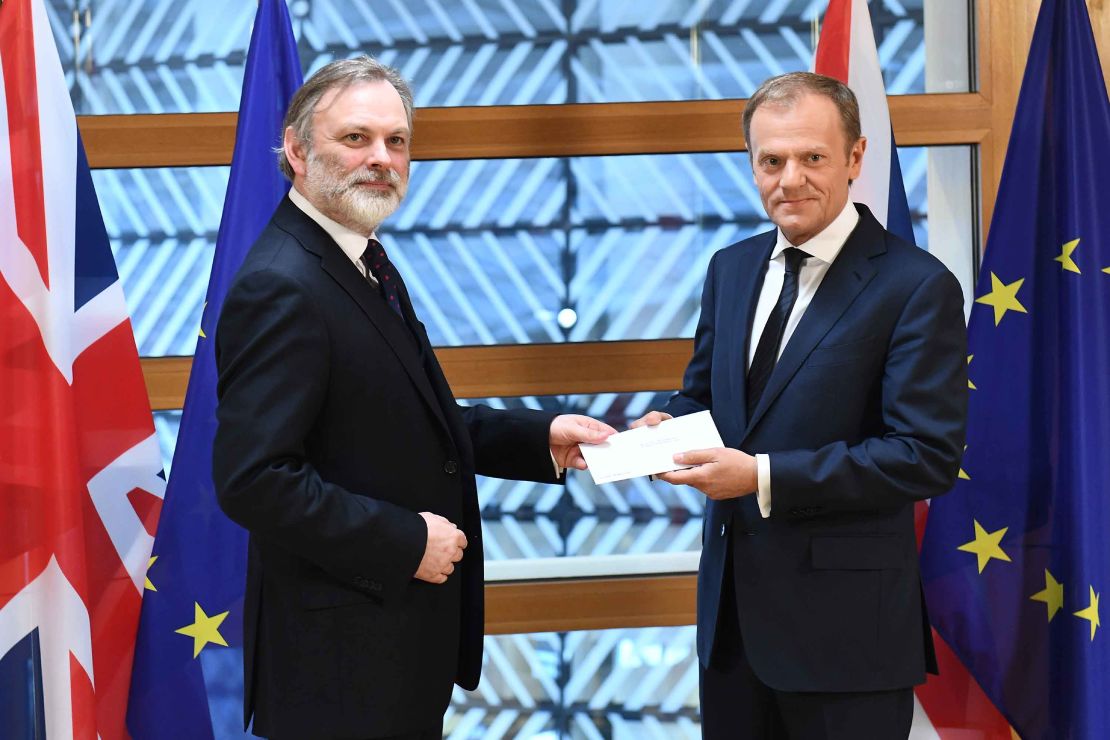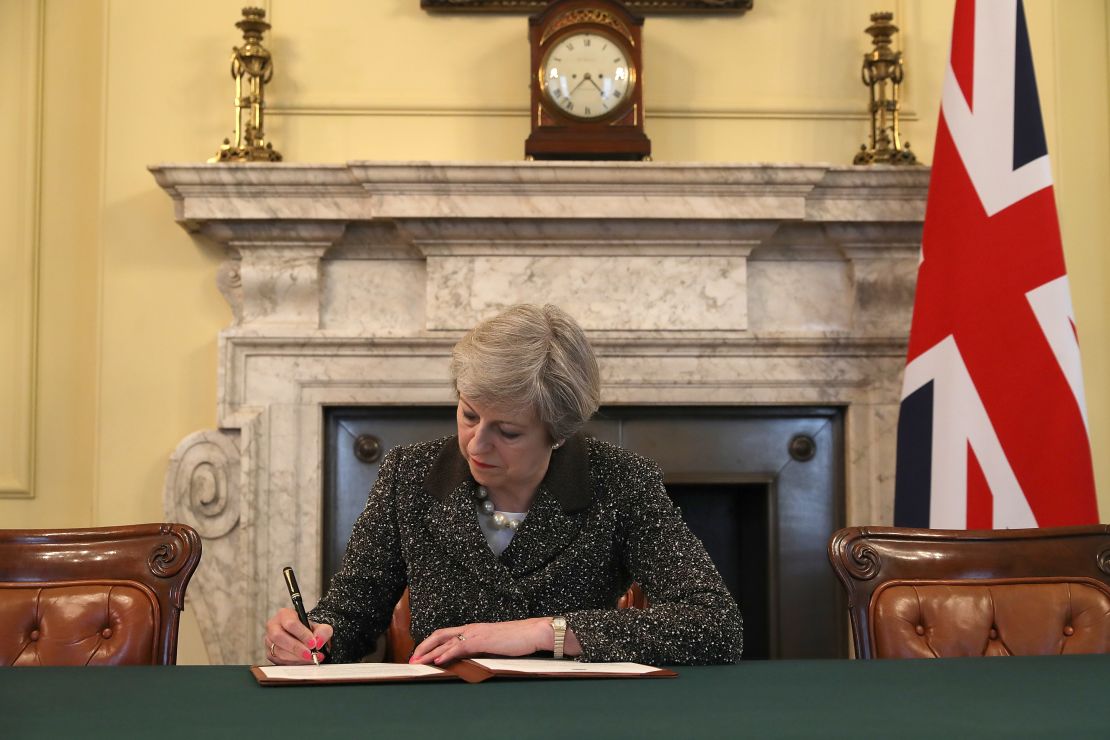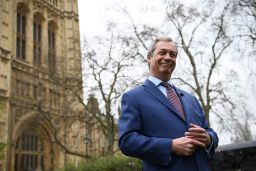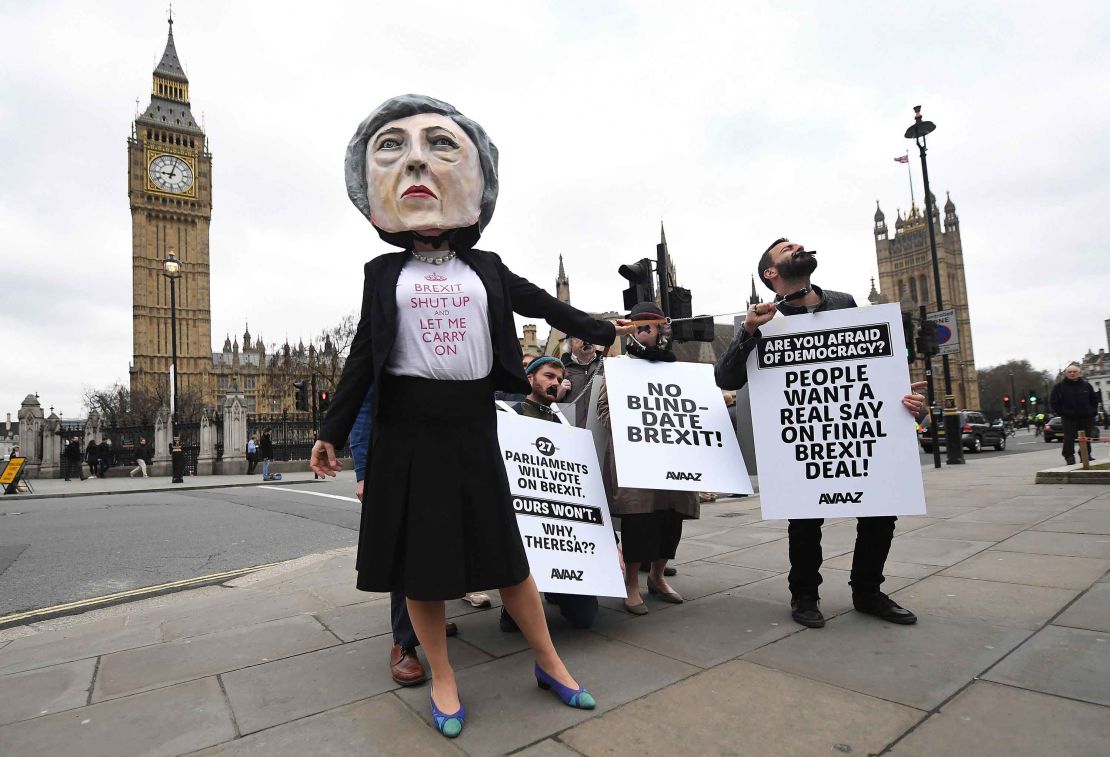The UK government has formally served divorce papers on the European Union, signaling the beginning of the end of a relationship that has endured for 44 years.
Theresa May, the British Prime Minister, confirmed that the UK had triggered Article 50 of the Lisbon Treaty, beginning a legal process that must end in two years’ time with Britain leaving the EU.
“This is an historic moment for which there can be no turning back. Britain is leaving the European Union,” May told the House of Commons in London.
A few minutes earlier in Brussels, the British Permanent Representative to the EU, Sir Tim Barrow, delivered a six-page formal letter of notification to Donald Tusk, the President of the European Council, in Brussels.
“The Article 50 process is now under way, and in accordance with the British people, the United Kingdom is leaving the European Union,” May said.

At the headquarters of the European Council Wednesday morning, Barrow emerged from a black Jaguar holding a briefcase containing the letter signed by May in Downing Street on Tuesday night. His route had been kept secret in an effort to avoid any attempts to intercept the letter.
“After nine months the UK has delivered,” Tusk said on Twitter, moments after the letter was handed over.
This official start to the Brexit process comes nine months after the UK voted in a hotly contested referendum that exposed deep divisions across the country.
The Foreign Secretary, Boris Johnson, one of the leading figures in the referendum campaign, expressed his delight at the outcome. “It’s a great day,” he said as he left a meeting of the Cabinet in Downing Street.
Tusk: ‘We already miss you’
The split is expected to be bitter – EU leaders will not want to make leaving their union seem easy, to deter other countries that might be mulling a referendum of their own.
After receiving the letter, Tusk struck a gloomy note. “There is no reason to pretend that this is a happy day, neither in Brussels nor in London. After all, most Europeans, - including almost half the British voters, wished that we would stay together, not drift apart. As for me, I will not pretend that I am happy today,” Tusk said.
But he added that Brexit had made the 27 other nations in the EU more determined and united.
“And what can I add to this? We already miss you.”
The letter
In her letter, May tried to strike a conciliatory tone with the EU, reiterating her hopes for Britain and the union to remain the closest of allies and to seek a “deep and special partnership.” She also made clear that she wanted to avoid walking away with no deal, and proposed several principles to guide negotiations.
Here are the letter’s highlights:
- The UK won’t seek membership of the single market, essentially a free-trade zone.
- But it will seek a ‘bold and ambitious’ free-trade agreement.
- The UK hopes to avoid a cliff-edge separation and ensure certainty for businesses.
- It warns that European security will be under threat if a deal is not reached.
- It expects the devolved regions of Scotland, Wales and Northern Ireland will be granted greater powers.
- The government aims to repeal EU laws and automatically adopt them into UK law for review.
- A White Paper on how to do this will be published Thursday.
Talks to begin
The triggering of Article 50 starts the clock ticking on two years of talks between May’s government and the EU, which will involve everything from deals on trade, migration, education and healthcare.
In the House of Commons, May promised to represent all of the UK in the negotiations to come.

“When I sit around the negotiating table in the months ahead, I will represent every person in the whole United Kingdom – young and old, rich and poor, city, town, country and all the villages and hamlets in between. And yes, those EU nationals who have made this country their home.”
But she said she accepted that some consequences were inevitable.
“We understand that there will be consequences for the UK of leaving the EU. We know that we will lose influence over the rules that affect the European economy. We know that UK companies that trade with the EU will have to align with rules agreed by institutions of which we are no longer a part, just as we do in other overseas markets. We accept that.”
May had vowed to weather the storm of Britain’s exit from the EU’s single market and customs union, essentially a free-trade zone that the country will no longer be a part of.
The EU is the UK’s biggest trading partner, and experts have warned that striking a comprehensive trade deal in two years will be unlikely. The two parties can, however, continue trade talks beyond this period.
Even if some terms of divorce are not settled, the UK will fall out of the union on March 29, 2019. They can split earlier if both parties agree.
“The talks will be exhausting, sometimes frustrating and mind-numbingly intricate,” said CNN political contributor Robin Oakley.
“It seems almost impossible that a full deal on trade can be reached in two years. Some of the immediate questions can be settled, but Canada has been doing a trade deal with the European Union, and Canada hasn’t just had a divorce from the European Union. Canada wanted a deal, the EU wanted a deal – it’s taken seven years.”
Reaction
Jeremy Corbyn, leader of the opposition Labour Party, said the May government was taking the country in a direction that was “reckless and damaging.”
He criticized May’s earlier statements that her government would take no trade deal over a bad deal, and trade under default rules set out by the World Trade Organization.
“It would be a national failure of historic proportions if the Prime Minister comes back from Brussels without having secured protection for jobs and living standards,’ he said.

But one of the main architects of Brexit, Nigel Farage, former leader of the UK Independence Party, was jubilant.
“The impossible dream is happening. Today we pass the point of no return,” he wrote on Twitter.
In the seaside resort of Blackpool in north-west England, where the leave vote was a resounding 67.5%, there was a sense of optimism in the air.
“I feel like we’re going to be free. I feel like they’re going to take the shackles off us, because they have so many rules, what we can do and what we can’t do,” said resident Michael Roland, who spoke to CNN on the seafront.
A kingdom divided

As well as steering the negotiations with the EU, May must also contend with the fallout from Brexit at home.
The Scottish parliament on Tuesday voted to seek another independence referendum, after Scotland voted overwhelmingly in favor of remaining part of the EU.
“Today the PM will take the UK over a cliff with no idea of the landing place,” the First Minister, Nicola Sturgeon said on Wednesday. “Scotland didn’t vote for it and out voice has been ignored,” she wrote on Twitter.
The UK government has also said it will reluctantly have to consider reintroducing direct rule in Northern Ireland, if talks there over restoring a power-sharing executive fail.
The British people remain deeply divided over Brexit. On Wednesday, protestors outside Parliament condemned May’s approach to the split, some of them draping EU flags on their shoulders.
Journalist Judith Vonberg contributed to this report.





















